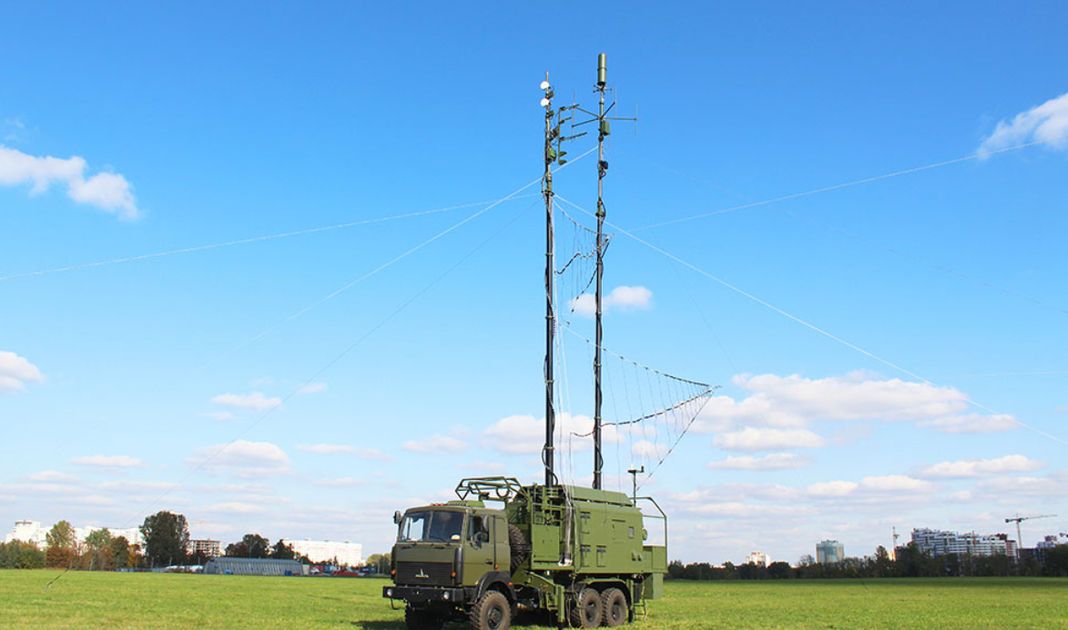Intermarium Weekly 07-14.07.2020

Groza-6 (bte.by)
Poland
Andrzej Duda was re-elected President of Poland and it will be three years until the next parliamentary elections. From the geopolitical point of view, we can expect to see Poland maintain its commitment to developing a Euro-Atlantic system of alliances by attempting to facilitate more of a U.S. military presence in the continent. Russian commentators have described Duda’s re-election as a continuation of Polish “russophobia.” The Russian president’s press secretary Dmitry Peskov recently described relations between Russia and Poland as being “at the lowest possible level.” According to Peskov, this goes against the interests of the two countries. Moreover, the “confrontational sentiment” of Warsaw is regrettable for the Kremlin.
In terms of Polish-EU relations, we can expect Warsaw to continue its foreign policy on the foundations of political and economic sovereignty, based on Duda’s election mantra, that: “Sovereignty and independence are not for sale!” The changing role of Germany in the European Union can find some contradictions in relations between Warsaw and Berlin and Brussels. Poland will try to establish closer regional cooperation in the system of the Visegrad Group and increase its role in Ukraine and Belarus, especially the latter if Lukashenka is removed from his current position. In the global arena of competition between traditionalist and leftist groups, Duda’s victory is being seen as a win for the former.
Germany and Poland
The German government has allocated about 380 million euros for the expansion and electrification of the railway line between Angermuende (Germany) and the Polish-German border. In addition, a 100-million-euro contribution will be made to the project of the federal states of Berlin and Brandenburg – the money will be directed to double-track expansion of the line along its entire length. A second path will be built by Deutsche Bahn on the section between the Polish-German border and the city of Passov (length about 30 km). Also, 5 railway stations will be modernized. Construction work will be completed in 2021-2026. After their completion, it will be possible to get from the Polish coastal city of Szczecin to the German capital 20 minutes faster than now – in 90 minutes instead of 110. This shows Germany’s determination towards increasing its economic cooperation with Poland and can also be interpreted as an improvement of the railroads for the incorporation of these systems into the Chinese transportation strategy in Eurasia.
Belarus
Update – the Belarussian election commission hasn’t allowed registering Viktar Babaryka and Valery Tsepkalo as candidates for the presidency. However, Siarhei Tsikhanouski’s wife is going to participate in the upcoming elections in August.
Lukashenka’s vision
The biggest challenge for the regime in Minsk is now the registration process of the candidates from the opposition. All candidates have been in prison until now and their future is uncertain but it is clear that they can be released only after the elections. However, everything will depend on the situation on the streets and the commitment of the foreign players interfering in the electoral process. Alexander Lukashenka feels the weakness of his power and he is referring to the geopolitical consequences to the country if the electorate chooses the way of political transformation similar as in Ukraine. In a closed meeting with the regional leadership, he hints that such a scenario is possible if they will turn against him. In Minsk, he stated – “Yes, I came to ask you to save this country. Well, suddenly, listen, I’m not eternal, tomorrow I will not be. Save this piece of land.” In his relations with the Media, he tries to represent himself as a democratic and tolerable person. On 9th July he had a big press-conference where he presented such attitudes but at the same time he noted that the “overwhelming freedom of speech does not imply permissiveness” and such comments can be understood as a criticism of the opposition. Therefore, he stressed that “Freedom of speech in any state is limited by the law. So here we put things in order.” How he is going to do this, time will show. For him the constitutional reforms and any changes in the country must be conducted gradually and be well-elaborated, without drastic transformations including the transit from a socialist orientated economy to a market orientated economy. One of the main mottos of the opposition are exactly these demands: constitutional reforms and market reforms in the economy.
About the global geopolitical situation he stated that currently, a unique situation has arisen when there is a redivision of the world, and at this stage it is very important for Belarus to find its place. He called the current situation unique, but at the same time very difficult and dangerous – “Balancing between these giants (world centers of power) is a very dangerous thing, but where to go?” The main task for the country’s leader, Lukashenka believes, at this stage is to maintain an independent, sovereign state.
Defense Ministry Reshuffle
The President of Belarus has carried out personnel changes in the leadership of the Armed Forces. The head of state signed the relevant decrees on July 7. Major General Pavel Tikhonov was relieved of his post as head of the main intelligence department – the deputy chief of the General Staff – and placed at the disposal of the Minister of Defense. Major General Ruslan Kosygin, Deputy Head of the General Staff, was appointed to his post. The territorial defense department will now be led by Colonel Andrei Matievich. He also appointed Major General Valery Gnilozub as Deputy Chief of the General Staff for Combat Command, relieving him of the post of Chief of Staff – First Deputy Commander of the North-West Operational Command. Major-General Igor Demidenko, the Deputy Commander of the Western Operational Command, will come to this place.
Belarus and Russia
President of Belarus Alexander Lukashenko signed Decree No. 263 “On the draft international treaty,” in which he approved the draft protocol on amending the intergovernmental agreement with Russia on providing the government of Belarus with a state export loan for the construction of a nuclear power plant. As reported in June, the draft protocol on amending the agreement on the provision of a loan to Belarus for the construction of nuclear power plants was approved by the Russian government. It is proposed to extend the period of use of the loan by two years – until the end of 2022. In addition, a fixed interest rate on the loan is set at 3.3% per annum, and the start date of the repayment of the principal debt on the loan is transferred from April 1, 2021 to April 1, 2023.
Union State: 58th session of the Parliamentary Assembly of the Union of Belarus and Russia
The Chairman of the House of Representatives Vladimir Andreichenko during the meeting emphasized that a genuine union that meets the vital interests of peoples and can serve as an attractive example for other nations cannot be built on singular pragmatism. He represents Belarus in this organization. According to him, such integration is based on common values and relations, which presuppose equal rights in all basic spheres of life of the state and society. Moreover, he repeated Lukashenka’s words that “Despite the difference in the scale of our countries, it is equal right allied relations that are equally beneficial for Belarus and Russia.” At the meeting amendments to the Union State’s budget were adopted. As a result of the adopted amendments, the budget of the Union State for 2020 by income increased to 7,259.1 million Russian rubles. The surplus was almost halved and amounted to 579.9 million Russian rubles. In total, 12 programs, three projects and 24 activities of the Union State were financed from the budget.
Dmitry Peskov, the press secretary of Vladimir Putin stated recently that the implementation of the Union Treaty between Russia and Belarus is on the agenda, is being discussed at various levels, and that all stages of integration are spelled out in it. Earlier, Aleksey Venediktov, editor-in-chief of Ekho Moskvy radio station, said that he had confirmation of the conversation between the presidents of Russia and Belarus about the unification of the two countries, allegedly held a year and a half ago in Shanghai. It should be stated that the Belarusian Ambassador had previously complained that Russia wanted to give only symbolic elements of sovereignty around 15% and the maximum left to Minsk in this project was only control over the police and some other symbolic functions. We assume that this is what Lukashenka meant when he began demanding independence and sovereignty from foreign actors. However, it appears that he just wants to increase his country’s share of independence, but is not against the idea of integration in general.
Union State Secretary of State (SG) Grigory Rapota stated that the tax maneuver in the oil sector has become a key source of disagreement in the economic sphere between Russia and Belarus. Concurrently he stressed that there is great interest of investors in the construction of a high-speed railway between St. Petersburg and Hamburg. According to Rapota, a discussion is currently underway with the Russian government about who will be involved in the implementation of the project. Strikingly, he noted that the Union State is ready to facilitate relations between Russia and Ukraine.
A Russian and Belarusian “Schengen” or the Integration of Minsk into the Russian Paradigm
The two states signed a “visa-free-agreement” on 19th June, which allows full freedom of movement and additionally the recognition of the two countries visas to third countries. It is necessary as soon as possible to remove all restrictions on the movement of citizens of Belarus and Russia across the joint border. This was announced today at the 58th session of the Parliamentary Assembly of the Union of Belarus and Russia by Chairman of the House of Representatives of the National Assembly Vladimir Andreichenko. The full implementation of this agreement will increase the dependence of Belarus on Russia and the integration of Belarusian society into the Russian geopolitical paradigm.
Belarusian Electronic Warfare in Libya
According to the Turkish side, the Russian military illegally handed over the LNA “Krasukha-4” electronic warfare systems (EW), with which the LNA units disabled all Turkish-made unmanned aerial vehicles (UAVs) that were available to the GNA within two weeks. To refute these allegations, LNA published a photo of the electronic warfare complex, with the “assistance” of which 11 Turkish UAVs belonging to the GNA crashed. Unexpectedly for many experts, this terminator was the R-934UM2 Groza-6 jamming station manufactured in Minsk by KB Radar OJSC, the managing company of the Radar Systems holding company. This EW facility was originally sold by Belarus to the United Arab Emirates, which then, as part of the military assistance to the LNA, transferred the station to armed groups led by Field Marshal Khalifa Khaftar. It is worth noting that the Belarusian systems “feel” the following vulnerabilities of the UAVs: signal receiver of satellite navigation system; devices for obtaining specific information; radio transmission and reception of specific and telemetric information; command and navigation radio links with an antenna-feeder device; command information exchange device; information exchange device.
The jamming stations, including Grom-6, are aimed at these vulnerabilities. Its technical characteristics allow users to: detect UAVs by electronic radiation and track their movement; detect and suppress UAV control channels from the ground control point and data transmission channels from the UAV to the ground control point; to effectively suppress the equipment of the UAV’s on-board navigation systems (GPS, GLONASS, Galileo, BeiDou) and replace real navigation data with false ones in order to remove the device from the intended route or force it to crash land. This, presumably, was the reason for the failure of all Turkish-made UAVs that were in service with the GNA.
Ukraine
The Minsk Agreement
The West should support the revision of the Minsk agreements to resolve the situation in the Donbas since they (the agreements) no longer reflect the reality, said Deputy Prime Minister of Ukraine, Minister for Reintegration of Temporarily Occupied Territories Aleksey Reznikov. Reznikov expressed the corresponding opinion in an article for the Atlantic Council. The representative of Kyiv noted a “dead end in peace talks,” which indicates the need for new approaches to resolving the situation in the Donbas. According to him, the Minsk agreements of 2015 no longer reflect the realities “for a number of reasons,” in particular, changes in the line of contact. Reznikov also called on Western leaders to review the role and functions of international institutions participating in the peace talks in the Donbas. He believes that if there is no support, Ukraine should think about creating and attracting new allies, although it does not specify who it means. Earlier, deputy head of the presidential administration Dmitry Kozak said that Ukraine’s withdrawal from the Minsk agreements would be an “extraordinary event,” but Russia is politically prepared for this option. Ukraine since the first year thinks that these agreements are an instrument in the hands of Russia to keep Ukraine under her control.
Ukraine-NATO: cooperation in the Black Sea
The Minister of Defense of Ukraine Andriy Taran and NATO Secretary General Jens Stoltenberg during a telephone conversation agreed to strengthen the presence of forces on land, sea and in the airspace of the Black Sea region by increasing patrols in the air and the presence of ships of the naval forces of the member countries of the alliance. It was emphasized that an important aspect of the conversation between Taran and Stoltenberg was the exchange of views on the security situation in eastern Ukraine and in the Black Sea. The interlocutors agreed that the security situation in the Black Sea continues to deteriorate due to the fact that the Russian Federation is increasing its military presence and changing the balance of forces. The Ukrainian Defence Minister expressed interest in establishing a joint exchange of information on the situation in the region and invited NATO member states to join the national strategic exercises scheduled to be held in southern Ukraine this fall. Taran also invited the NATO Secretary General on an official visit to Ukraine. Ukraine hopes that NATO’s increasing role in the region will be a limiting factor against Russian ambitions in Southern Ukraine. It is noted that the Minister of Defense of Ukraine emphasized the irreversibility of implementing the state’s strategic course towards the acquisition of full membership in the North Atlantic Treaty Organization.
Ukraine again in the Snake Island
Helicopters of the State Border Service regained lost skills and abilities for flying over the territorial sea and to the farthest outpost – on Snake Island. This week, an Mi-8 helicopter of the Kharkiv Separate Aviation Squadron of the State Border Guard Service of Ukraine carried out air monitoring along the route “Odessa-Snake Island-Vilkovo.” During this flight, border guards inspected 2,400 km2 of water. The crews made 4 landings on the helipad of Snake Island and 3 landings on the Vilkovo site. This flight became a landmark, because border guards helicopters have not operated on Snake Island for 12 years. From now on, two crews of Mi-8 helicopters of the State Border Guard Service of Ukraine received permits for flights over the sea. And the modernization of rotorcraft makes it possible to carry out such flights safely. It should be noted that Ukraine had serious disputes with Romania over this island and actually Romania won the case in the international court, but the island has remained under Ukrainian control. Romanians were not satisfied with the results because they wanted a 100% victory but received only 80%, as one Romanian politician said. The current head of the Romanian MFA is the minister who won the case against Ukraine in the international court.
Turkish-Ukrainian Cooperation
Ukraine is seeking to acquire another batch of shock drones from Turkey. This topic was discussed during the Turkish Defence Minister’s official visit to Kyiv. In a statement by Anadolu (AA) on Sunday, Ukrainian Defense Minister Andriy Taran announced the country’s intention to buy Turkish-made drones at a meeting with Turkish counterpart Hulusi Akar on Friday. During the meeting, the defense ministers discussed bilateral relations and regional events, as well as future cooperation in marine and air projects. In 2018-2019, Ukraine acquired six Bayraktar TB2 drones, two control stations, as well as Turkish-controlled guided bombs. Under the agreement, Bayraktar TB2 unmanned aerial vehicles manufactured by the Turkish company Baykar will be delivered to the Ukrainian army within a year and three ground control posts will be included. In the near future, Ukraine is planning to use these drones in the Donbas, where it is hoped they will be something of a game-changer in the regional battlefield against the separatists. Ukraine is actively working on creating its own drones and bombs for these drones.
The SpetsOboronMash company completed the development of an uncontrolled aircraft bomb for UAVs, tests of which will begin in the near future. The bomb weighs 4.2 kg, its length is about 45 cm, the warhead is high-explosive fragmentation with a cumulative effect, the warhead fuse has various modes of detonation – above the surface, on the surface or after immersion. The diameter of the bomb on the warhead is 80 mm, in the zone of the ring stabilizer – 110 mm. On one side of the munition there is a connector for a bomb exit sensor with an actuator for separation from the carrier. Additionally, Ukraine has tested this week new Ukrainian-built drones.
Bulgaria
In Bulgaria several events since the end of June coincided, triggering mass-demonstrations which are evolving into a big political crisis that can reshuffle the current correlation of forces in the country.
The first trigger: Protests against rampant over-construction on the Black Sea coast took place in several Bulgarian towns throughout June and July, against amendments to the Biodiversity Act, which protestors say will potentially harm protected zones, delay protective measures and introduce commercial construction work to those areas. Peaceful protests occurred in Sofia, Plovdiv, Varna, Ruse, Pazardjik, Blagoevgrad, Botevgrad, as well as on the Kara Dere beach. The rally in Sofia expectedly drew the biggest crowd, as thousands took to the streets of the capital, ending their march in front of parliament. The protest is a continuation of several others held earlier in June, which opposed over-construction on the seaside, as photos of new construction work in the Sinemoretz and Alepu beach and camping locations in southern Bulgaria went viral. The municipality of Burgas alerted the courts about plans to turn the Alepu beach from a wild beach into a resort.
The second trigger: the situation gradually turned into a new dimension, mid-July. Bulgaria looks set for a series of large-scale anti-government protests, highlighting the political crisis in the country and the numerous conflicts between the main figures on the scene. Thousands took to the streets of Sofia and followed the traditional protest route through the city centre from the Ministerial Council and nearby Presidency building to Eagles’ Bridge, demanding the resignation of Boyko Borissov’s centre-right government. The protests are being organised by a civic initiative for judicial reforms, called “Justice for Everyone”. But the crowds attending are more diverse, as liberal-oriented people march along with representatives of the opposition Socialist Party, who traditionally take a socially conservative and EU-sceptic line, and support President Rumen Radev who is in political conflict with Borissov. Those who oppose Borissov and Prosecutor General Ivan Geshev, widely seen as Borissov’s extended hand, were quick to endorse the latest protests. President Radev joined the protesters and encouraged the crowd. He said that he understood their anger as it came from all the lies they had heard and years of corruption. A trigger for the protests action was a video that went viral from July 8 that showed Hristo Ivanov, leader of the opposition “Da, Bulgaria!” party, going by boat to the secluded private villa of the controversial politician Ahmed Dogan (Turkish or Tatar origin), calling his residence near Burgas and the restricted access to the nearby beach illegal. In the video, Ivanov is seen being pulled away by policemen and guards. Dogan is viewed as an influential presence in Bulgarian politics and is thought to be close to Borissov, although he is not part of the government.
The third trigger: now it is possible to say that the opposition leaders would like to make a strategic advance against the Prime Minister and gain important political capital before elections. They have demanded the resignation of the Prime Minister. But despite growing civil unrest and waves of protests, Prime Minister Boyko Borissov has given no sign that he is ready to step down. The protests in Sofia and throughout the country are expected to continue through the week. Elections are not due until November. From the geopolitical point of view here, this can be seen as a confrontation of the forces which would like to see Bulgaria more integrated into the processes of closer European integration and those who want a more independent foreign policy of Bulgaria.
The Baltic States
Atlantic Resolve
From July 13 to 20, as part of the ongoing U.S. military operation “Atlantic Resolve”, about 10 UH-60 “Black Hawk” helicopters will arrive in Latvia to strengthen regional security, Latvia’s Defense Ministry confirmed July 10. This will be part of a larger movement of US troops with about 60 UH-60 “Black Hawk” helicopters in all, which will be stationed at military bases in Latvia, Germany and Poland. Soldiers of the 101st combat aviation brigade will work alongside Latvia’s National Armed Forces at the Aviation Base at Lielvārde, and will train with other NATO troops stationed in Latvia. It is planned that this rotation will stay in Latvia for nine months. The arrivals coincide with recent statements by Latvian Defense Minister Artis Pabriks in which he said Latvia would like an even larger U.S. presence and would be prepared to pay for it. According to the U.S. Army, “Atlantic Resolve provides these rotational units with the ability to build readiness, increase interoperability and enhances the bond between ally and partner militaries through multinational training events. There are three types of Atlantic Resolve rotations – armored, aviation and sustainment task force. These rotations are overseen by the 1st Cavalry Division (Forward), a regionally aligned headquarters based in Poznan, Poland. There are approximately 6,000 Soldiers participating in Atlantic Resolve at any given time, conducting operations and exercises across 17 countries.
More United States in Latvia
Latvia wants to start negotiations with the United States on the possible deployment of a military contingent in Latvia and to cover the related costs, Minister of Defense Artis Pabriks told the Latvian defense portal Sargs.lv. Latvia wants to start negotiations with the United States on the possible deployment of a contingent of forces in Latvia after US President Donald Trump announced the partial withdrawal of troops from Germany. As Pabriks emphasizes, it is important to maintain a significant presence of US forces near NATO’s eastern border, so Latvia is ready to host a part of the US contingent’s troops, and also cover the related costs. He says that in view of changes within global politics and ensuring that the Baltic region and the rest of Europe remains secure, it is important to strengthen the transatlantic link within both NATO and the European Union. However, Latvian officials declared that this demand for American troops is based upon joint allied interests and does not play against Germany.
Autor
Ridvan Bari Urcosta
Senior






Trwa ładowanie...